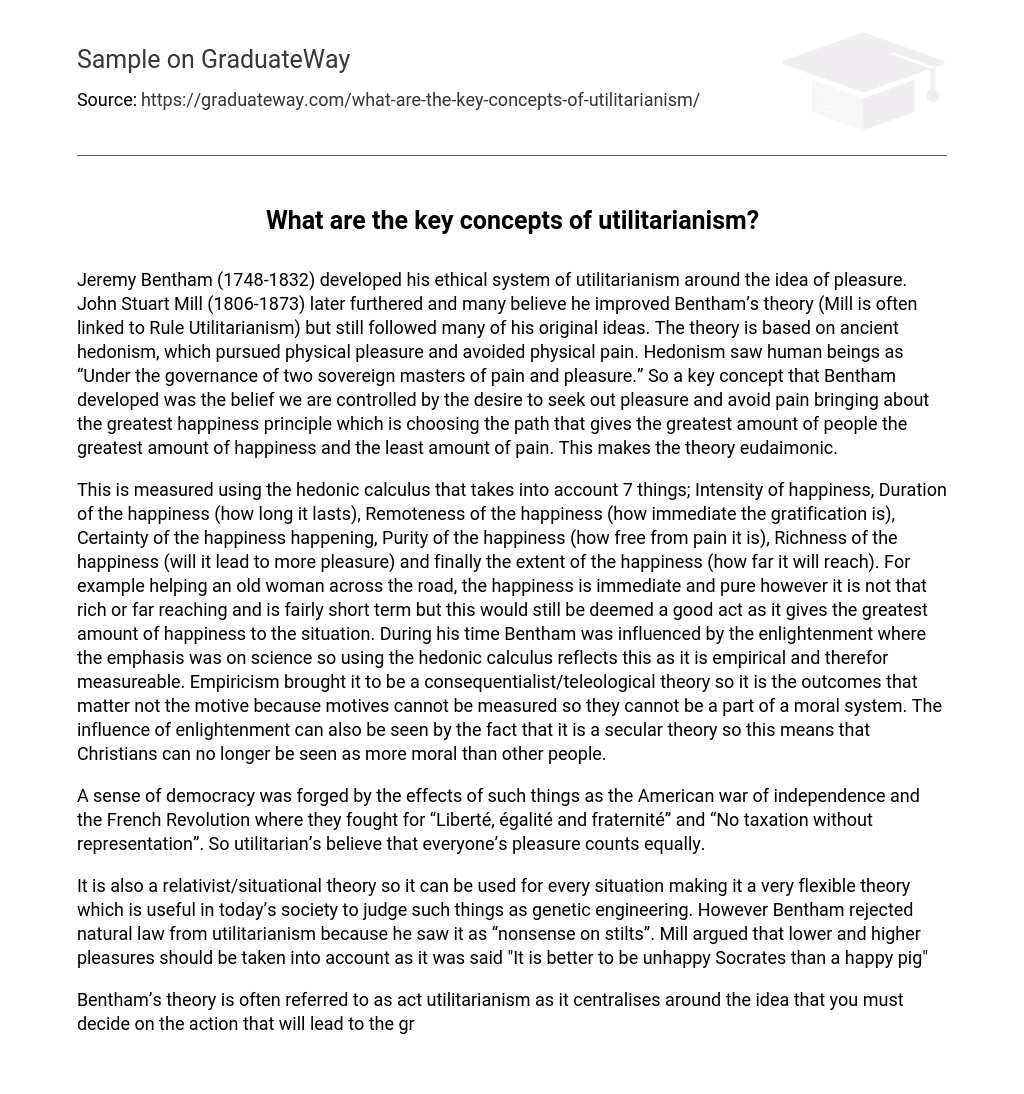Jeremy Bentham (1748-1832) developed the ethical system of utilitarianism, which centers on pleasure. John Stuart Mill (1806-1873) later expanded and refined Bentham’s theory, while still adhering to many of its original principles. The theory is rooted in ancient hedonism, which sought physical pleasure and avoided pain. Hedonism viewed human beings as “under the governance of two sovereign masters of pain and pleasure.” Thus, a key concept developed by Bentham was that we are driven by the desire for pleasure and avoidance of pain, leading to maximizing happiness. This principle involves choosing actions that bring the greatest amount of happiness to the most people while minimizing pain. Therefore, this theory can be described as eudaimonic.
The measurement of happiness is determined using the hedonic calculus, which considers 7 factors: intensity, duration, remoteness, certainty, purity, richness, and extent of happiness. For instance, helping an elderly woman cross the road brings immediate and pure happiness, although it may not be very rich or far-reaching and is relatively short-term. Nonetheless, this act is still considered good as it brings the greatest amount of happiness to the situation. Bentham, influenced by the Enlightenment era, emphasized science and thus used the empirical hedonic calculus for measurement. Being a consequentialist/teleological theory, motive is not important; only outcomes matter since motives cannot be measured and are therefore not part of any moral system. The influence of the Enlightenment is also evident in the theory being secular, making Christians no longer inherently more moral than others.
The concept of democracy emerged from events like the American war of independence and the French Revolution, which advocated for “Liberté, égalité and fraternité” and “No taxation without representation.” In line with this, utilitarians assert that the pleasure of every individual holds equal value.
The theory is relativist/situational, making it applicable in any situation, which makes it a flexible and relevant theory in contemporary society. It can be used to evaluate matters like genetic engineering. However, Bentham dismissed natural law from utilitarianism, considering it nonsensical. Mill argued that both lower and higher pleasures should be considered, famously stating, “It is better to be unhappy Socrates than a happy pig.”
Bentham’s theory, called act utilitarianism, highlights the significance of selecting the action that produces the most good in a particular circumstance. Conversely, Mill’s interpretation of the theory, commonly known as Rule utilitarianism, proposes that rules should be formulated according to utilitarian principles to safeguard inherent goods and promote societal welfare.
There are various types of modern utilitarianism, such as Ideal, Negative, and Preference, which have emerged as a response to the subjective nature of Bentham and Mill’s form of Utilitarianism. Moore proposed his concept of ‘Ideal Utilitarianism’, in which he contended that truth, beauty, and love hold equal importance to happiness. Moore criticized the democratic perspectives of utilitarianism by asserting that if the majority were to disregard truth, beauty, and love, their actions should be deemed wrong. Similarly, Popper argued against the impracticality of promoting happiness and devised negative utilitarianism with the aim of minimizing misery.





